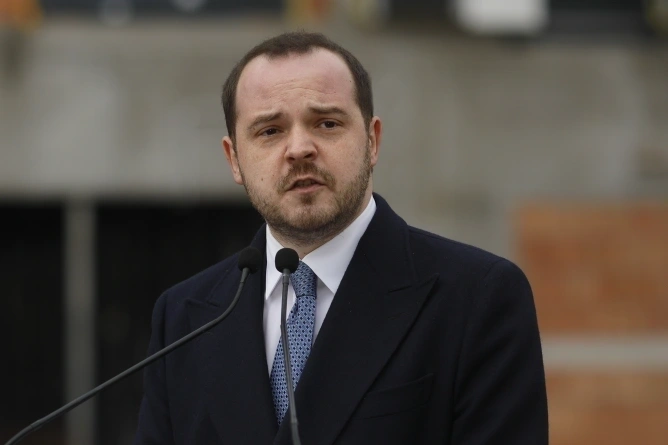
LAST 24 HOURS.
The analysis of the dominant topic in the Romanian press for yesterday focuses on the reactions of various leaders against the Alliance for the Unity of Romanians (AUR) party. These reactions were triggered by statements and actions of AUR leaders, which were interpreted as nationalist, revisionist or even Russian-influenced. Târziu's statements were also picked up by the Russian press to suggest Romanian and Hungarian territorial claims to Ukraine.
- The topic has a significant impact on the Romanian public, especially in the context of current geopolitical tensions and Romania's foreign relations. Concerns about national sovereignty and territorial integrity are sensitive topics, and the reactions to Târziu's speech reflect these concerns.
Eduard Hellvig, the former head of the Romanian Intelligence Service (SRI), and then Remus Pricopie, the rector of the National School of Political and Administrative Studies (SNSPA), directly criticized AUR leaders Claudiu Târziu and George Simion. Hellvig referred to possible links between AUR and Russia, highlighting concerns about foreign influence on Romania's domestic politics. In a post, he pointed out similarities between the speeches of Claudiu Târziu and the leader of the extremist Our Fatherland in Hungary, László Torocskai, on territorial claims over Ukraine. Hellvig's and Pricopie's critical reactions also generated some searching interest from the Romanian public, who also followed Târziu's revisionist statements and the criticism he received.
Prime Minister Marcel Ciolacu announced that he will officially ask Ukraine and Moldova to clarify the reasons why AUR leader George Simion is banned from entering these countries. This signals a growing concern among government officials about the actions and rhetoric of the AUR.
The reaction of Prime Minister Marcel Ciolacu to the Alliance for the Unity of Romanians (AUR) and Simion's relations with Ukraine and the Republic of Moldova was widely publicized in the Romanian press. Marcel Ciolacu emphasized Romania's support for the accession of Ukraine and the Republic of Moldova to the European Union, underlining the country's commitment to support these nations in the context of the conflict with Russia and regional challenges.
The National Liberal Party (PNL) has also responded by organizing large anti-extremist rallies, inspired by similar models in Germany, with the first to be held in Suceava, a stronghold of PNL leader Gheorghe Flutur and the site of a previous protest organized by AUR.
All these reactions suggest a serious concern among political and civil society leaders about the direction of political discourse in Romania, especially in the context of regional tensions and external influence. Criticism of the AUR shows an attempt to counter nationalist rhetoric and to maintain a pro-European and democratic direction in domestic politics.









